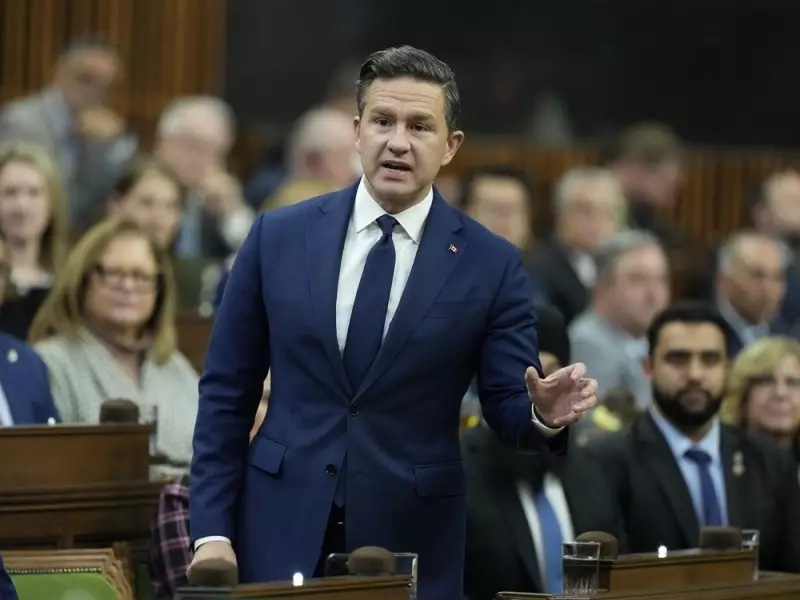
The Conservative Party of Canada is facing a profound internal crisis that extends far beyond Pierre Poilievre's leadership, with recent high-profile defections revealing deep fractures within what was once considered a "big tent" political movement.
Recent Defections Signal Deeper Problems
Within a dramatic 48-hour period, the Conservative Party lost two significant members. Nova Scotia MP Chris d'Entremont crossed the floor to join the Liberals, while Alberta MP Matt Jeneroux announced his imminent resignation from politics. The political shockwaves continued as rumours spread on Parliament Hill that at least two Quebec Conservative MPs have held discussions with Prime Minister Mark Carney's team about potentially switching sides.
The timing is particularly concerning for the Conservatives, coming just months after the federal election that left Carney's Liberals only two seats short of a majority government. The Liberals are actively seeking to reach the 172-seat threshold needed to control the House of Commons and ensure their government's long-term stability.
Leadership Response Raises Questions
Rather than engaging in introspection about why longtime party members were leaving, Poilievre's team responded with defiance. His assistants publicly criticized the departing MPs, characterizing them as traitors who could no longer tolerate the party's direction.
This response highlights what political analysts see as a fundamental leadership test that Poilievre failed. Real leadership involves questioning one's own methods, and when leadership becomes immune to questioning, it often indicates questionable leadership qualities.
The Collapsing Big Tent
The current crisis reflects a broader identity struggle within Canadian conservatism. For decades, the Conservative Party functioned as a "big tent" organization where Red Tories (moderates) and Blue Tories (social conservatives) found common ground through shared principles and pragmatic governance.
Since the 2003 merger between the Canadian Alliance—the successor to the Western-based Reform Party—and the Progressive Conservative Party, the socially conservative Blue Tory faction has gradually gained dominance within the modern Conservative Party of Canada. This shift has alienated moderate conservatives who now find themselves politically homeless.
The situation intensified in 2022 when Poilievre embraced anti-vaccine rhetoric and conspiracy-tinged populism to secure the party's leadership, moving the Conservatives further to the right. Meanwhile, under Justin Trudeau, the Liberal party had drifted sharply leftward, creating a vacuum in the political centre.
Carney's Centrist Strategy
When Mark Carney succeeded Trudeau, he strategically repositioned the Liberals toward the centre-right. On key issues including trade, immigration, crime, taxes, bureaucracy, and even energy and environmental policies, Carney has governed more like a Progressive Conservative than a traditional Liberal—despite the $78-billion deficit in his recent budget.
This pragmatic approach has attracted moderate conservatives who no longer feel represented in Poilievre's Conservative Party. While the Conservatives accuse the Liberals of stealing their ideas, Carney's strategy has been more nuanced: he has adopted the most popular elements of the Conservative platform while discarding its most divisive aspects, particularly the polarizing, populist tone that repels centrist voters.
Poll Numbers Reflect Shifting Landscape
The political consequences are becoming increasingly clear. A recent Léger poll shows the Conservatives now trail the Liberals by five points in voter intentions—a dramatic reversal for a party that, less than a year ago, was widely expected to defeat Trudeau and form a majority government.
Instead of focusing energy on pressuring MPs to remain in the party or denying reports of further defections, many political observers suggest the Conservatives should engage in serious reflection about why their colleagues are considering abandoning ship—and why, after nearly a decade in opposition, the party still hasn't managed to win a federal election.
Politics fundamentally involves the art of compromise, and until the Conservative Party rediscovers its sense of balance and inclusivity, its once-broad coalition will continue to shrink—along with its prospects of returning to power.





